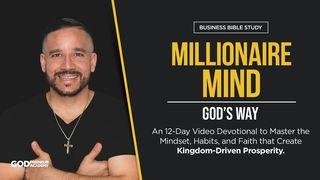Delve Into The ProphetsSample

DAY 7 – MICAH
Micah spoke to the southern kingdom of Judah during the reigns of Jotham, Ahaz, and Hezekiah (that is, from around 740 BC until sometime after 700 BC). He foresaw that Samaria and Jerusalem, the capital cities of Israel and Judah, would be destroyed because they had become centers of injustice and corrupt religion. The complaints that Micah delivered in God’s name were essentially the same ones that Amos and Hosea had brought a generation earlier.
The people had abandoned the covenant God made with them, and they had taken up the pagan religious practices of the Canaanites. Micah speaks of witchcraft, spells, idols, sacred stones, and Asherah poles. He describes how the rich and powerful were ignoring the law of Moses and ruthlessly exploiting the poor: “They covet fields and seize them,” “Her leaders judge for a bribe,” they use “dishonest scales” and “false weights.” Micah warned that in punishment for their unfaithfulness and injustice, both kingdoms would be invaded, conquered, and exiled. Just as he predicted, Samaria fell to the Assyrians in 722 BC and Jerusalem fell to the Babylonians in 586 BC.
Nevertheless, Micah’s prophecies actually alternate between warnings of destruction and promises of restoration. Micah foresees that in forgiveness, compassion, and covenant faithfulness, God will preserve a remnant of the people, purify them, and bring them back from exile. They’ll be ruled by a righteous king and become a beacon to the whole world. They’ll be a kingdom that will show all nations the ways of God.
These prophecies of doom and hope alternate in the book of Micah in a much more systematic way than in Hosea. In the book of Micah there are three groups of oracles. Each one begins with a series of judgments, and then each one concludes with promises of restoration. The book is therefore organized thematically. Even so, its oracles aren’t in exact historical order. For example, its first two oracles are linked together in an opening judgment section, but they date from different periods in Micah’s ministry. The first oracle comes from sometime before the destruction of Samaria, which took place in 722 BC, but the second oracle was delivered twenty years later, during the Assyrian invasion of Judah.
This Assyrian invasion was ultimately unsuccessful, however, and Jerusalem was spared Samaria’s fate for a time. This seems to have been due at least in part to Micah himself. Nearly 150 years after he lived, the prophet Jeremiah was threatened with death for declaring Jerusalem would be destroyed. But some of the elders of Israel defended him by recalling that Micah had once said the same thing. These elders noted that Micah’s prophecies had prompted King Hezekiah to “fear the Lord and seek his favor,” and that this had led the Lord to “relent, so that he did not bring the disaster he pronounced against them.” This shows that Micah helped encourage reforms that took place in Judah under Hezekiah, and that he enabled the people of Judah discover in his own day that God “does not stay angry forever but delights to show mercy.”
PRAYER: Show me Your ways, Lord, teach me Your paths.
Scripture
About this Plan

The Old Testament of the Bible is broken into three major sections, the second of which is known as the Prophets. If you didn’t know that, imagine all of the other interesting things you’ll learn in this reading plan as you explore the purpose, context, and background of this fascinating and unique part of God’s Word.
More
We would like to thank Biblica for providing this plan. For more information, please visit: http://www.biblica.com
Related Plans

When Life Feels Empty

1 Gift. 1 Life. 1 Million.

Daily Godpreneur: Millionaire Mind

Man vs. Temptation: A Men's Devotional

Song of Solomon | Chapter Summaries + Study Questions

God Wants You to Prosper

BibleProject | Finding God in the Wilderness

30 Days to Confident Faith

Love God Greatly - the Savior Who Comes Near: A Study on the Nearness of God From the Manger to the Cross
